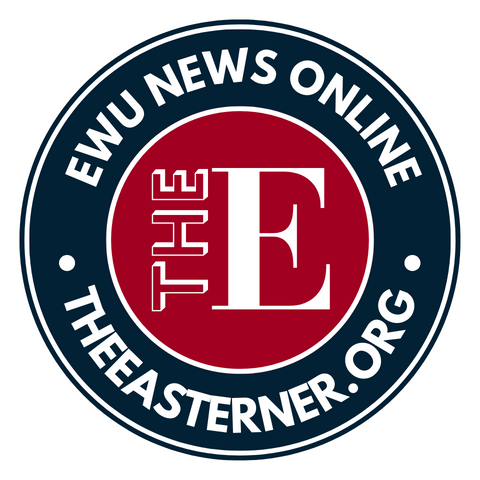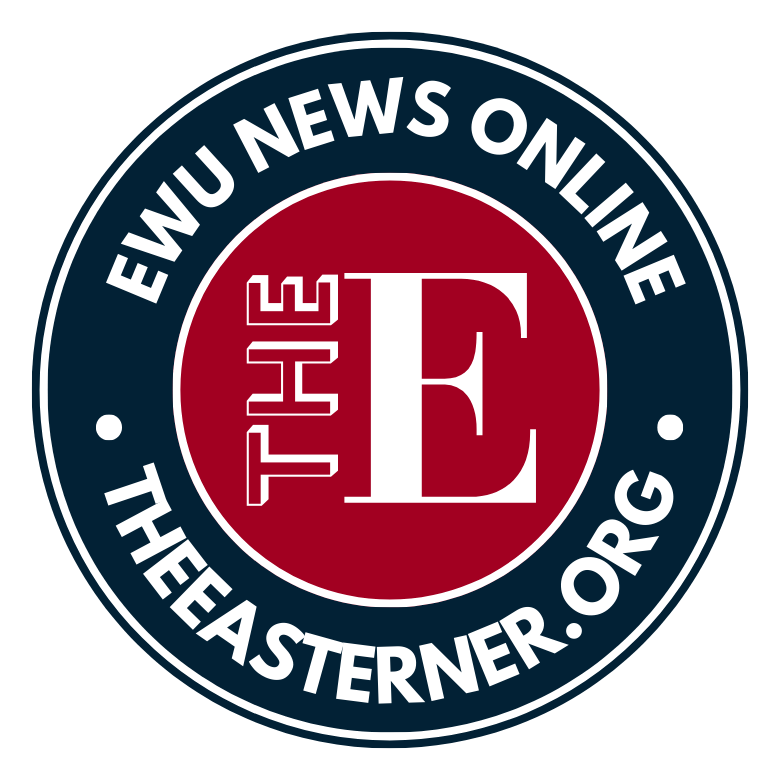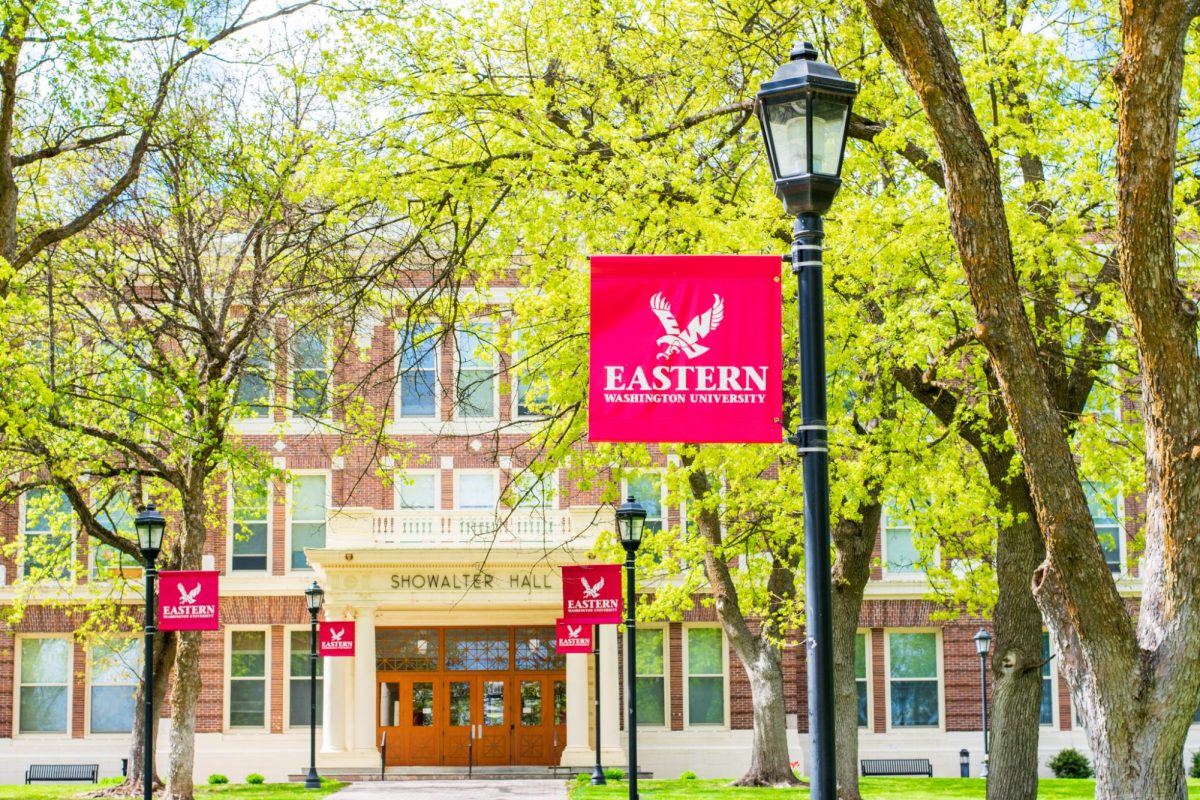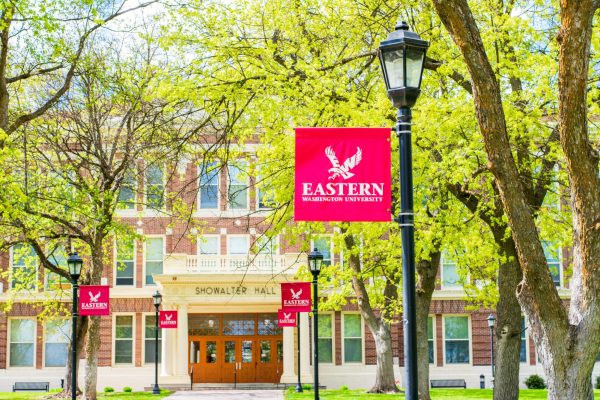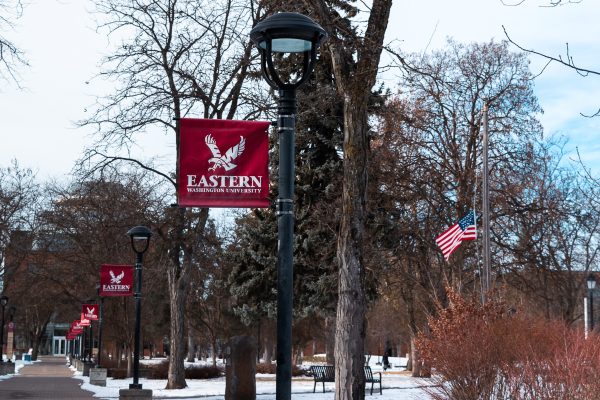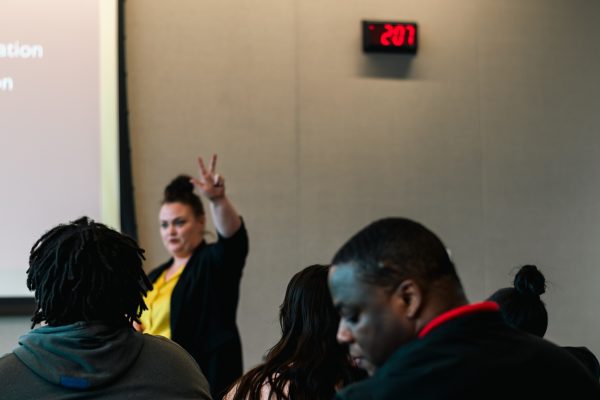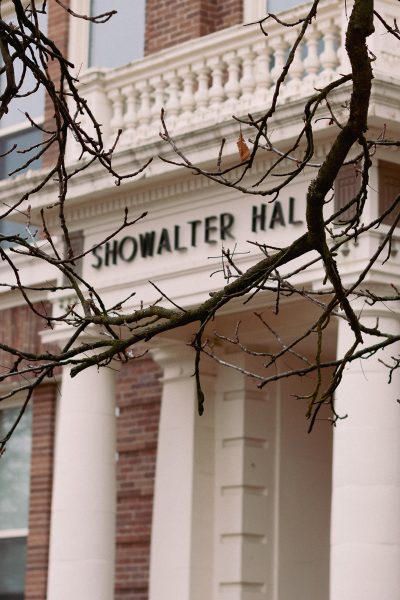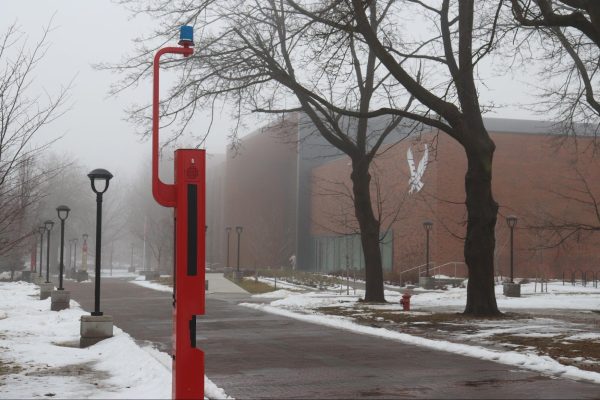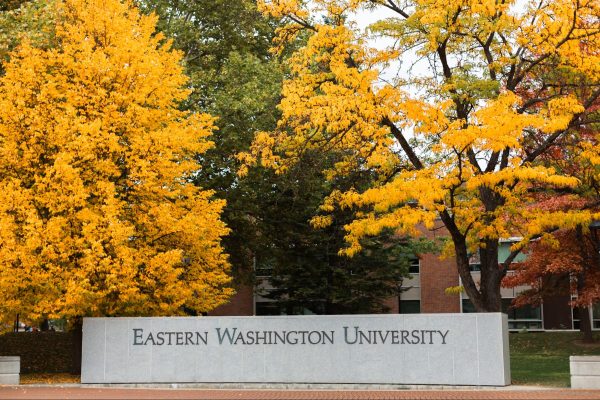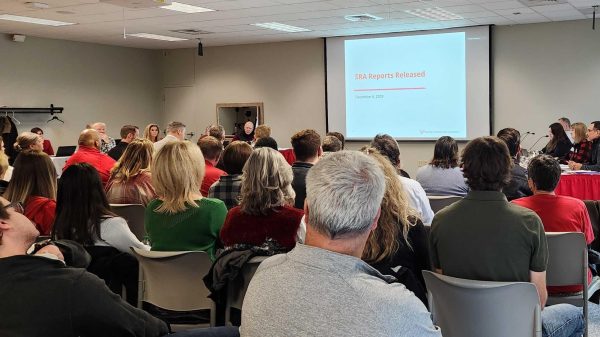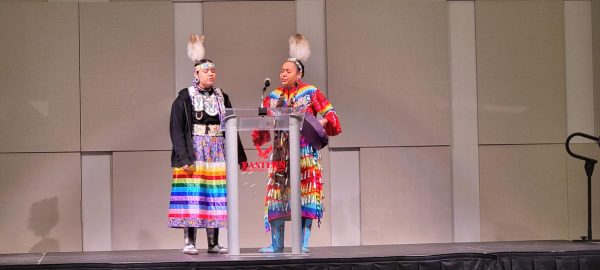EWU is Making New Efforts in Order to be More Sustainable
Erik Budsberg, EWU Sustainability Coordinator, addressed ways EWU is becoming more sustainable.
April 25, 2017
On April 19, Erik Budsberg, EWU’s sustainability coordinator, spoke in the JFK Library as a part of Sustainability Week.
Budsberg said sustainability is “good for the environment, good from a social justice and social equity perspective, and good from an economic perspective.”
The global perspective of sustainable development is based on the Brundtland Report, or the idea that current needs of development can be met without preventing future generations from also meeting their needs, Budsberg said.
According to the presentation shown during Budsberg’s speech, EWU has taken many steps to reduce their impact and increase campus sustainability. Efforts include replacing inefficient fluorescent lighting around campus with LED lights, managing emissions from the campus boiler, sub metering utilities to track usage and divesting from fossil fuel holdings.
Dining Services has also switched to compostable and recyclable containers and now gets 23 percent of its food from local sources, including the campus garden.
Efforts to decrease disposable water bottles by installing bottle filling stations around campus have decreased the number of plastic bottles recycled and filled roughly 1.6 million bottles. For a water bottle ban similar to that on Western Washington’s campus to take place, the students will need to show that the ban is something important they want on this campus for it to be supported and offered, Budsberg said.
The Sustainability Tracking, Assessment & Rating System (STARS) report is a campus wide assessment that began in November. It assesses the weaknesses and strengths in operations, academics, planning and administration and community engagement to see how sustainably the University campus operates as a whole, Budsberg said.
“I see education as the key way to promoting sustainability and sustainable practices,” Budsberg said.
According to a survey sent out by the Office of Sustainability, there are currently 44 sections offered in sustainability across disciplines. Major and minor opportunities in sustainability are being developed for the curriculum, Budsberg said.
“Opportunities in living laboratories create projects for students and faculty to do research on areas of campus operations that actually benefit campus life and campus operations but also serve as teaching tools,” Budsberg said.
Looking forward, EWU has set some long term goals to improve the sustainability on campus. From a waste management perspective, the long-term goal is being a zero waste campus. This means over 90 percent of waste is recycled or composted; EWU is currently at 50 percent and only has minimal composting facilities. The main deterrent for this is funding. EWU officials also have plans outlined to become carbon neutral by 2050.
Many steps can be made that will not end up costing money. Students can show the interest and find time to help support these programs in order to spread the word is a significant step, Budsberg said.
“It makes the most sense to me to make as little impact as possible on the environment around you,” said EWU junior Clare de Young. “Going into engineering sustainability is kind of the future, I don’t think it’s ethical to keep polluting everything, even if we have a good life now.”
When asked about the presence of sustainable options and programs on campus de Young said she thinks students want sustainable options, but for the cost to be a factor and stay low on campus.
Karen Wichman, Office of Sustainability employee, said that The Washington Higher Education Sustainability Conference that EWU and Gonzaga co-hosted in February inspired the forum and the week’s activities leading up to Earth Day.
The Office of Sustainability has been on campus since June of last year.
“Erik is a phenomenal resource if they have the desire to explore further opportunities and options in sustainability,” Wichman said.
Students interested in becoming more involved can attend events by the Sustainability Club or volunteer in the Campus Community Garden.
